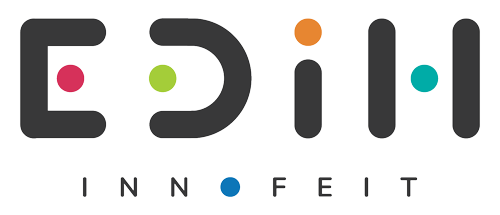This course is intended for economic operators that place products on the market, and especially electrical apparatus and equipment. They will gain insight into the technical and legislative requirements for their products and will learn how to navigate their road to the CE compliance.
Course Overview Table
| Chapter | Details |
| Partner | Ss. Cyril and Methodius University in Skopje, Faculty of Electrical Engineering and Information Technologies |
| Title | CE compliance and example of EMC for electrical equipment |
| Service | Course |
| Target Group | Industry, Start-ups, Manufacturers |
| Format | In-Person Training |
| Focused on Key Technologies | CE compliance |
| Status | Ready to offer |
| Stakeholders from SME/PA Side | Any economic operator |
| Requirements for Participation | No prerequisites |
| Estimated Duration | 4 hours |
Description of the Course
Every economic operator, and especially electrical and electronic equipment operators are interested in having a CE mark attached to their products. This mark signals to the users that the product is compliant with the European regulations and regulation compliance is required for free product movement on the European market.
North Macedonia is a candidate member state and is transforming her regulation towards EU compatibility. There are many small businesses that are looking forward to the European market. They need to adopt the core principles needed for delivering compliant products. Macedonia has adopted the latest IEC standards in the relevant fields and brought into force the Law for technical requirement of products and conformity assessment and also the Law for general safety of products. There are also new Regulations on EMC, Elevators, Pressure equipment etc. They specify the possibility of the economic operators to attach CE conformity sign to their products that satisfy the requirements.
The Faculty of Electrical Engineering and Information Technologies is active participant in these processes and has gained significant experience in the field. It also possesses equipment for EMC testing. Knowledge transfer, at least the basics, is the main objective of this course.
Some real examples of non-compliance and their consequences will be presented to justify the legislation. The definitions basic terms will be explained. The obligations of the economic operators will be discussed. The EU Directives defining the essential requirements will be presented together with a tool to navigate through these requirements and select the directives that apply to a certain product.
As a special case the EMC directive will be discussed. It is usually combined with the Low voltage directive for various electrical appliances, apparatus and installations. Special attention will be dedicated to the selection of standards that should be consulted and applied during the design and development stage of the devices, and also the quality assurance that should be applied during the production. A declaration of conformity and the CE sign will be discussed.
Examples of testing for compliance according to the EMC standards will be presented.
Tentative agenda
- Some problems and their consequences before the New Legislative Framework
- Obligations of economic operators and other market stakeholders
- EU Directives regarding the essential requirements
- The Blue Guide for helping the navigation
- Tool for selecting directives applicable to a product
- EMC directive and Low voltage directive introduction
- Standards application as a Road to presumption of conformity
- Quality assurance of production as a guarantee for conformity
- Accredited Body for compliance certification
- Declaration of conformity and the CE sign
- Example tests for EMC compliance: Electrostatic immunity, Voltage Dips and Variations
- Example of climatic test (optional)
A unique value of this course is the organized approach to the complex matter of legislative and technical requirements the producers (economic operators) face these days for their products. This is the first thing they should check whenever they have an idea for a great product to (develop and) place on the competitive European market, but also on the Republic of North Macedonia market.
Additional Course Information
| Category | Details |
| Developed skills | Participants will acquire knowledge and skills, including: |
| Skill 1: Defining the technical requirements their products should comply with.
Skill 2: Knowing their position among the other stakeholders in the market . Skill 3: Methodologies to assure their production is in line with the compliance requirements. Skill 4: Insight into testing for CE compliance. |
|
| Learning Methods Used | lectures, demonstrations, group discussions |
| References/Resources | https://single-market-economy.ec.europa.eu/single-market/goods/new-legislative-framework_en |
| Overview Slides | Accessible through the course platform |
